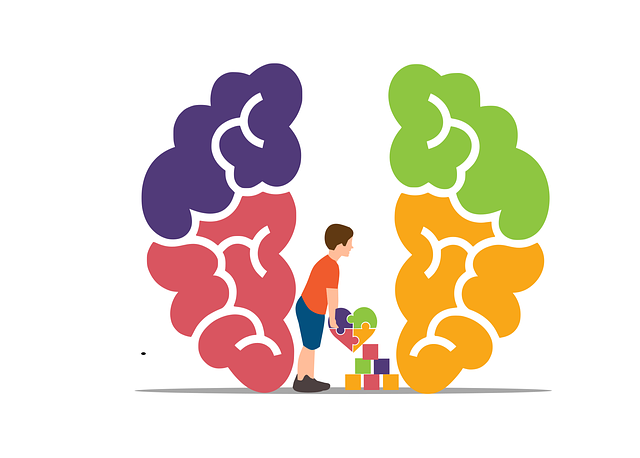Mental health professionals face burnout and secondary traumatic stress due to high emotional demands, complex caseloads, and intense client relationships. Organizations like Wheat Ridge Stress Management Therapy combat this through robust risk assessment strategies, self-care workshops (e.g., mindfulness meditation), and resources like mental wellness podcasts and education programs. Adopting these practices builds resilience, enhances well-being, and improves professionals' ability to support clients' mental health journeys.
Mental health professionals, despite their noble work, face unique challenges that can lead to significant risks. This article explores essential aspects of risk assessment for these experts, focusing on understanding specific factors like client load and case complexity, which impact well-being. We delve into effective stress management techniques fostering resilience and highlight strategies to mitigate burnout risks. Furthermore, continuous education and supervision emerge as powerful tools in Wheat Ridge Stress Management Therapy, offering protection against potential pitfalls.
- Understanding Mental Health Professional's Unique Risk Factors
- The Impact of Client Load and Case Complexity
- Stress Management Techniques for Resilience
- Identifying and Mitigating Burnout Risks
- Continuous Education and Supervision: A Protective Measure
Understanding Mental Health Professional's Unique Risk Factors

Mental health professionals, while dedicated to supporting others’ well-being, face unique challenges that contribute to their own risk factors. These include high emotional demands, complex caseloads, and intense interpersonal interactions. The nature of their work often exposes them to trauma, distressing client stories, and high-stress situations, which can lead to burnout, compassion fatigue, and secondary traumatic stress disorder (STSD).
Risks are exacerbated by the pressure to maintain strong professional boundaries while fostering vulnerable relationships. Additionally, the constant exposure to others’ mental health struggles may trigger unprocessed traumas or emotional vulnerabilities within the professional themselves. Recognizing these factors is crucial for organizations like Wheat Ridge Stress Management Therapy and Mindfulness Meditation workshops offered by Stress Management Workshops Organization (SMWO) to implement robust risk assessment strategies.
The Impact of Client Load and Case Complexity

The volume and complexity of client cases can significantly impact mental health professionals’ well-being, particularly in environments like Wheat Ridge Stress Management Therapy centers. As therapists take on a growing caseload, they may face increased pressure to manage multiple, diverse, and challenging situations simultaneously. This can lead to heightened stress levels, burnout, and potential compromises in the quality of care provided. Each client brings their unique set of needs, traumas, and mental health conditions, demanding tailored approaches and extensive resources.
Navigating these complexities requires professionals to develop robust resilience-building strategies. Public awareness campaigns development and mental illness stigma reduction efforts can also contribute to a supportive ecosystem, where therapists feel equipped to handle diverse cases while maintaining optimal well-being. By fostering an environment that promotes open discussions about stress management and encourages healthy work-life balance, mental health professionals can enhance their resilience and better support their clients’ journeys towards recovery.
Stress Management Techniques for Resilience

Mental health professionals face unique challenges that can contribute to significant stress and burnout. To build resilience and maintain optimal mental wellness, integrating effective stress management techniques is essential. Techniques such as mindfulness meditation, deep breathing exercises, and progressive muscle relaxation have been proven beneficial in reducing stress levels and enhancing overall mental health. These practices encourage professionals to prioritize self-care, fostering a sense of balance and calm amidst demanding work environments.
Wheat Ridge Stress Management Therapy offers valuable resources for mental health practitioners seeking to navigate the complexities of their careers. The Mental Wellness Podcast Series Production can provide practical insights and strategies, while Mental Health Policy Analysis and Advocacy plays a crucial role in shaping supportive environments that promote mental wellness. By adopting these techniques and staying informed through relevant platforms, professionals can better manage stress, ensuring they remain equipped to support their clients effectively.
Identifying and Mitigating Burnout Risks

Burnout is a significant risk for mental health professionals, often stemming from high-stress work environments and demanding client caseloads. To mitigate these risks, professionals should prioritize self-care practices such as Wheat Ridge Stress Management Therapy, which offers valuable tools like Mental Wellness Journaling Exercise Guidance to help manage stress and emotions effectively. Regularly setting boundaries, engaging in activities that foster Positive Thinking, and seeking Confidence Boosting techniques can also prevent burnout.
Additionally, mental health professionals should be encouraged to participate in ongoing professional development and supervision to stay resilient. By incorporating these strategies into their routines, they can better navigate the challenges of their roles, ensuring they remain equipped to support their clients’ mental wellness without compromising their own.
Continuous Education and Supervision: A Protective Measure

For mental health professionals, continuous education and supervision are vital protective measures to navigate the complex landscape of client care. Regular participation in Wheat Ridge Stress Management Therapy or similar programs equips practitioners with advanced empathy building strategies, enhancing their ability to connect with clients on a deeper level. This ongoing learning environment ensures that professionals stay abreast of the latest research, treatment techniques, and mental wellness trends.
Moreover, integrating Mental Health Education Programs Design tailored for these professionals fosters a culture of continuous improvement. Through workshops, webinars, and peer-led discussions, practitioners can exchange insights, share best practices, and learn from each other’s experiences. Additionally, contributing to the production of a Mental Wellness Podcast Series allows professionals to reach a broader audience, disseminate knowledge, and inspire others in their journey towards excellence in mental health care.
Mental health professionals face unique challenges that can impact their well-being, making risk assessment a vital component of their practice. By understanding specific risk factors, such as client load and case complexity, and implementing effective stress management techniques, professionals can build resilience. Identifying burnout risks early and engaging in continuous education and supervision are powerful tools to prevent depletion. Following best practices in Wheat Ridge Stress Management Therapy, professionals can navigate the demands of their work while prioritizing self-care, ensuring long-term viability and high-quality patient care.












